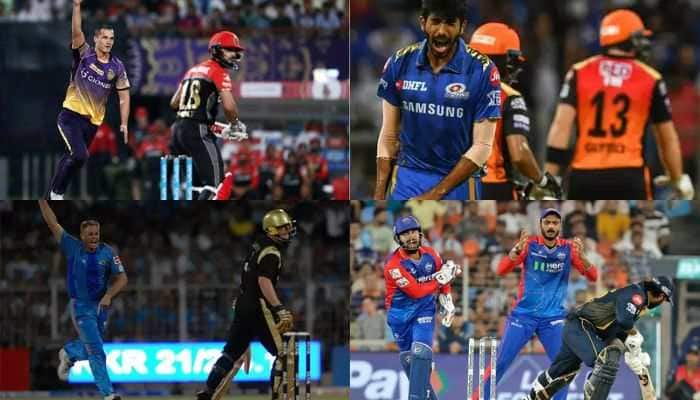Will Congress learn the lessons of success?
So finally, Indian democracy’s greatest carnival is over, but not before bringing cheers to the UPA camp and surprising the NDA and Left parties.
Trending Photos
)
 Himanshu Shekhar
So finally, Indian democracy’s greatest carnival is over, but not before bringing cheers to the UPA camp and surprising the opposition NDA and Left parties. May 16th has given India stability and handed Dr. Manmohan Singh a responsibility to take India out of the global meltdown and put it on the path of glory.
Congress’ revival in a state like Uttar Pradesh is undoubtedly a welcome sign for every one who thinks of India first. The party made huge gains in the Hindi heartland of UP & Bihar after decades of appalling performances. What remains to be seen is, will Congress learn the lessons of this success? Perhaps, the noises coming out from the camp don’t suggest so.
Undoubtedly, Rahul Gandhi was a hugely motivating factor in Uttar Pradesh for the Congress. His unrelenting campaigns in the interiors of the state helped him get a feel of more accurate ground realities and that struck an instant chord with people, who toil hard in their fields.
But let us ask some serious questions… Why did these voters turn their back to the Congress before and what went wrong in UP for Congress despite the state sending maximum Prime Ministers to Delhi.
Decades of Congress led government since our Independence failed to change the fortunes of the state, as it lagged behind on all radars of what you call is ‘development’. Voters were taken for granted, and Congress MPs were seen more at 10 Janpath rather than in their constituencies. Ministers were more interested in keeping the bosses happy, as warmth and comfort of Delhi lured them away from their states. I am not sure how far Congress leadership encourage this trend, but it definitely did nothing to curb it.
What happened next was the emergence of ‘Hindutva politics’, and riding high on its success, BJP emerged stronger in Uttar Pradesh. BJP’s rise and rise in UP coincided with Congress’ similar fall. The failure of Congress party to keep the focus on development and BJP’s ability to project a clean alternative to the people, helped Hindutva hardliners gain a prominent space in future politics.
Next was the emergence of parties like the Samajwadi Party, who marshalled their resources and turned out to champion the causes of Muslims, who were definitely in a mood of fear psychosis after the demolition of the Babri mosque. Late PV Narasimha Rao slept through what was happening in the state and was keener to wipe out opponents within the party and outside it. The Result, we got politicians chargesheeted in the Hawala scam. The message that spread was that it was Congress’ chargesheet rather than CBI’s.
Congress, who by then had enjoyed an unhindered support of weaker sections and Dalits, failed to do anything for them, as Kanshi Ram along with Mayawati championed their causes. While this shift was slowly occurring, Congress leadership was happy enough in exercising proxy rule through governors and were instrumental in bringing down some elected governments for short term gains.
Governor houses were turned into Congress headquarters as grassroot local Congress leaders were ignored and left in the lurch. The Result: the slow and gradual death of the party and the rise of regional players like Mulayam, Mayawati, Lalu, Ramvilas, Nitish… the list can probably go on.
So, the moment some party leaders started crying for Rahul as PM, my worst fears were coming true. In their utter haste to please the boss and become known as Rahul loyalists, these small time leaders were damaging the very cause for which Rahul stands. People of India voted Congress to power as they thought that the man, who could have easily grabbed any post, was embracing hardship and keen to earn his success. Rahul Gandhi discarded comforts and was talking about common man and that in particular helped him win hearts.
There is more to that success story apart from Rahul Gandhi. Dr. Manmohan Singh, with his clean governance image, broke the barriers in middle class voters. The five year Congress rule under him has largely been without any corruption charges. Probably the most corruption free Congress rule ever after Nehru’s first five-year tenure.
So when people voted UPA back to power, they did vote for neat and clean government and the mandate was for continuation of the good administration over divisive politics. Prime Minister Manmohan Singh and AICC should understand the fact that there is no alternative to clean and efficient governance. Failure in delivering might prove to be a costly mistake.
Instead team Manmohan has an opportunity to do a Sheila Dikshit, but that would require some honesty and drift from the traditional set procedure. I would suggest five things which Congress must watch-out for:
Himanshu Shekhar
So finally, Indian democracy’s greatest carnival is over, but not before bringing cheers to the UPA camp and surprising the opposition NDA and Left parties. May 16th has given India stability and handed Dr. Manmohan Singh a responsibility to take India out of the global meltdown and put it on the path of glory.
Congress’ revival in a state like Uttar Pradesh is undoubtedly a welcome sign for every one who thinks of India first. The party made huge gains in the Hindi heartland of UP & Bihar after decades of appalling performances. What remains to be seen is, will Congress learn the lessons of this success? Perhaps, the noises coming out from the camp don’t suggest so.
Undoubtedly, Rahul Gandhi was a hugely motivating factor in Uttar Pradesh for the Congress. His unrelenting campaigns in the interiors of the state helped him get a feel of more accurate ground realities and that struck an instant chord with people, who toil hard in their fields.
But let us ask some serious questions… Why did these voters turn their back to the Congress before and what went wrong in UP for Congress despite the state sending maximum Prime Ministers to Delhi.
Decades of Congress led government since our Independence failed to change the fortunes of the state, as it lagged behind on all radars of what you call is ‘development’. Voters were taken for granted, and Congress MPs were seen more at 10 Janpath rather than in their constituencies. Ministers were more interested in keeping the bosses happy, as warmth and comfort of Delhi lured them away from their states. I am not sure how far Congress leadership encourage this trend, but it definitely did nothing to curb it.
What happened next was the emergence of ‘Hindutva politics’, and riding high on its success, BJP emerged stronger in Uttar Pradesh. BJP’s rise and rise in UP coincided with Congress’ similar fall. The failure of Congress party to keep the focus on development and BJP’s ability to project a clean alternative to the people, helped Hindutva hardliners gain a prominent space in future politics.
Next was the emergence of parties like the Samajwadi Party, who marshalled their resources and turned out to champion the causes of Muslims, who were definitely in a mood of fear psychosis after the demolition of the Babri mosque. Late PV Narasimha Rao slept through what was happening in the state and was keener to wipe out opponents within the party and outside it. The Result, we got politicians chargesheeted in the Hawala scam. The message that spread was that it was Congress’ chargesheet rather than CBI’s.
Congress, who by then had enjoyed an unhindered support of weaker sections and Dalits, failed to do anything for them, as Kanshi Ram along with Mayawati championed their causes. While this shift was slowly occurring, Congress leadership was happy enough in exercising proxy rule through governors and were instrumental in bringing down some elected governments for short term gains.
Governor houses were turned into Congress headquarters as grassroot local Congress leaders were ignored and left in the lurch. The Result: the slow and gradual death of the party and the rise of regional players like Mulayam, Mayawati, Lalu, Ramvilas, Nitish… the list can probably go on.
So, the moment some party leaders started crying for Rahul as PM, my worst fears were coming true. In their utter haste to please the boss and become known as Rahul loyalists, these small time leaders were damaging the very cause for which Rahul stands. People of India voted Congress to power as they thought that the man, who could have easily grabbed any post, was embracing hardship and keen to earn his success. Rahul Gandhi discarded comforts and was talking about common man and that in particular helped him win hearts.
There is more to that success story apart from Rahul Gandhi. Dr. Manmohan Singh, with his clean governance image, broke the barriers in middle class voters. The five year Congress rule under him has largely been without any corruption charges. Probably the most corruption free Congress rule ever after Nehru’s first five-year tenure.
So when people voted UPA back to power, they did vote for neat and clean government and the mandate was for continuation of the good administration over divisive politics. Prime Minister Manmohan Singh and AICC should understand the fact that there is no alternative to clean and efficient governance. Failure in delivering might prove to be a costly mistake.
Instead team Manmohan has an opportunity to do a Sheila Dikshit, but that would require some honesty and drift from the traditional set procedure. I would suggest five things which Congress must watch-out for:







)
)
)
)
)
)
)
)
)
)
